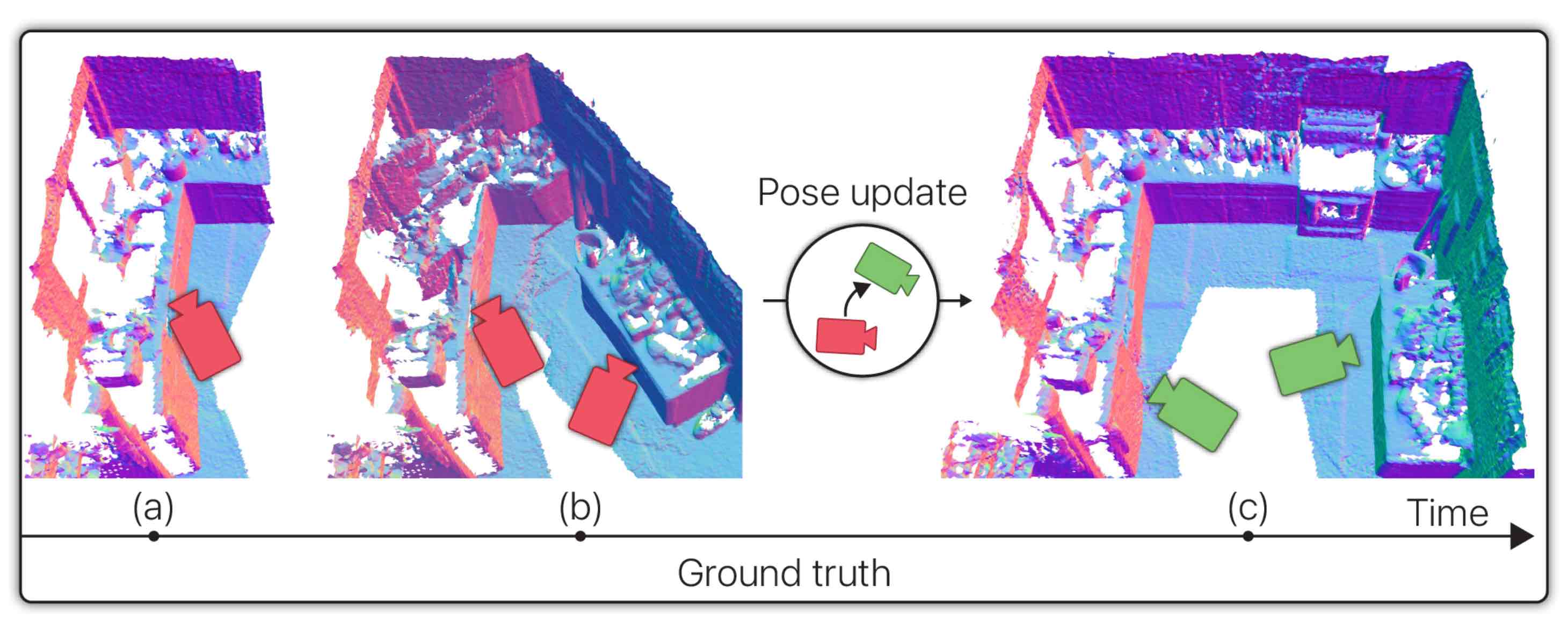BundleFusion: Real-time Globally Consistent 3D Reconstruction using On-the-fly Surface Re-integration
Real-time, high-quality, 3D scanning of large-scale scenes is key to mixed reality and robotic applications. However, scalability brings challenges of drift in pose estimation, introducing significant errors in the accumulated model. Approaches often require hours of offline processing to globally correct model errors. Recent online methods demonstrate compelling results, but suffer from: (1) needing minutes to perform online correction preventing true real-time use; (2) brittle frame-to-frame (or frame-to-model) pose estimation resulting in many tracking failures; or (3) supporting only unstructured point-based representations, which limit scan quality and applicability. We systematically address these issues with a novel, real-time, end-to-end reconstruction framework. At its core is a robust pose estimation strategy, optimizing per frame for a global set of camera poses by considering the complete history of RGB-D input with an efficient hierarchical approach. We remove the heavy reliance on temporal tracking, and continually localize to the globally optimized frames instead. We contribute a parallelizable optimization framework, which employs correspondences based on sparse features and dense geometric and photometric matching. Our approach estimates globally optimized (i.e., bundle adjusted) poses in real-time, supports robust tracking with recovery from gross tracking failures (i.e., relocalization), and re-estimates the 3D model in real-time to ensure global consistency; all within a single framework. Our approach outperforms state-of-the-art online systems with quality on par to offline methods, but with unprecedented speed and scan completeness. Our framework leads to a comprehensive online scanning solution for large indoor environments, enabling ease of use and high-quality results.
PDF Abstract



 SUN3D
SUN3D